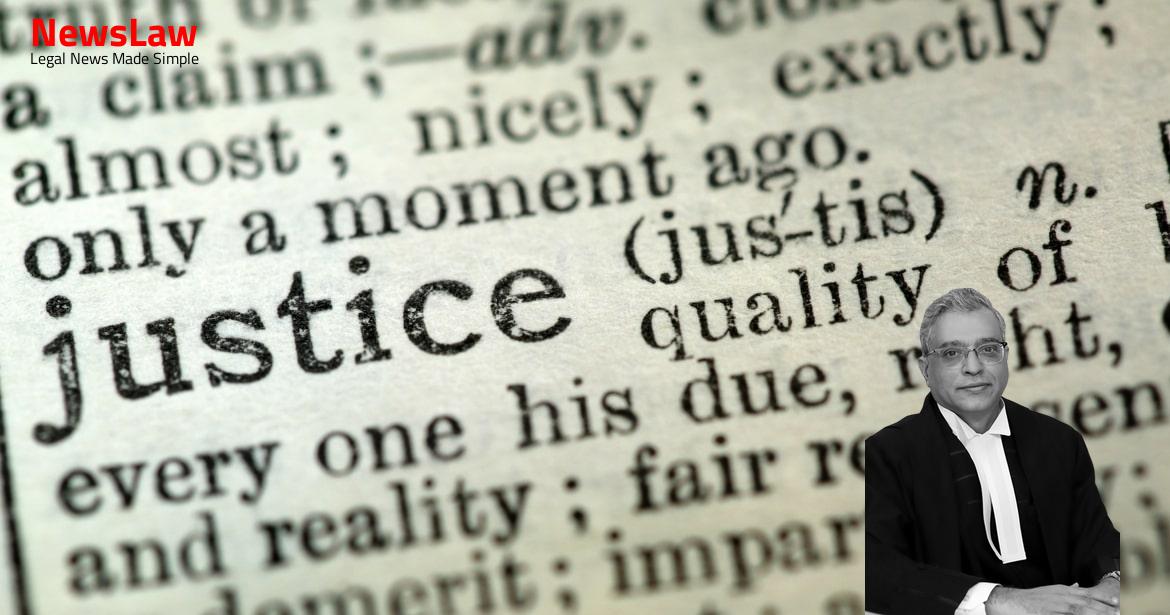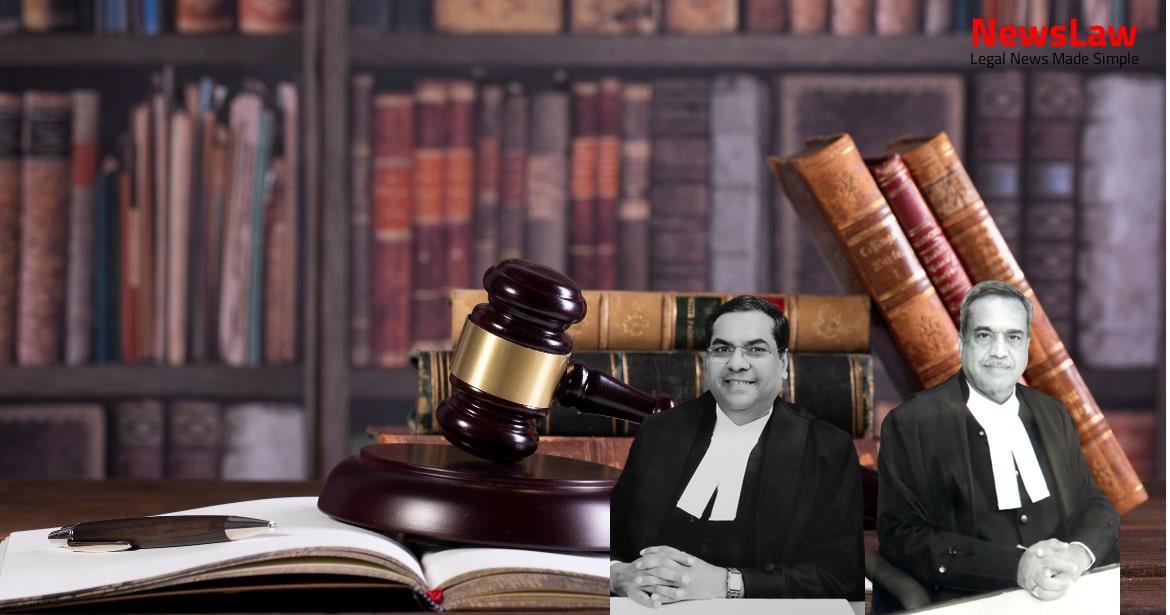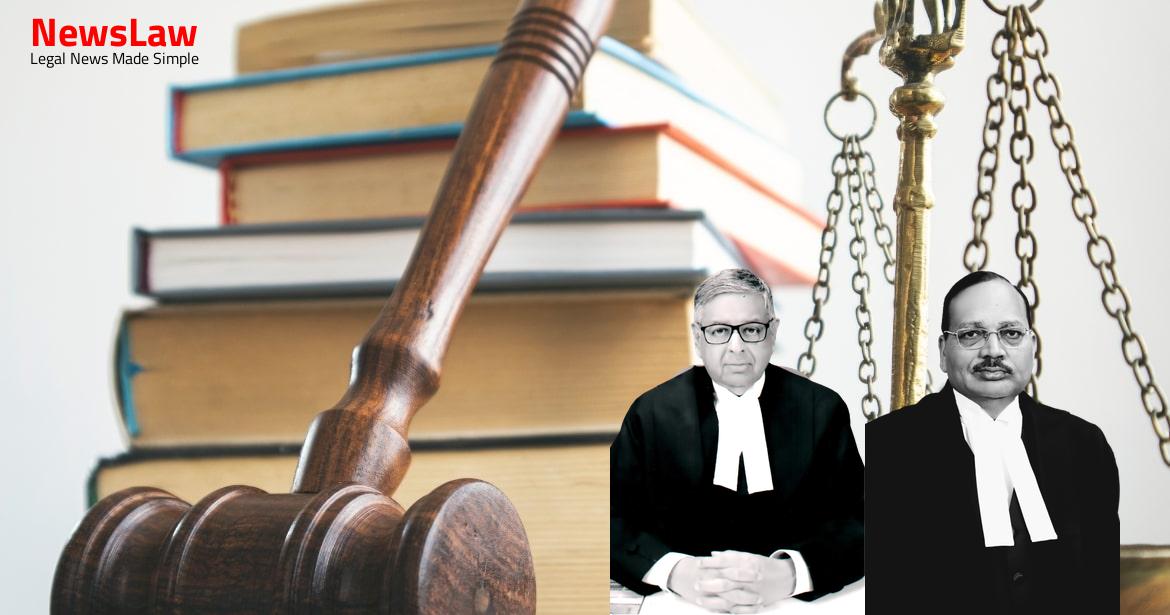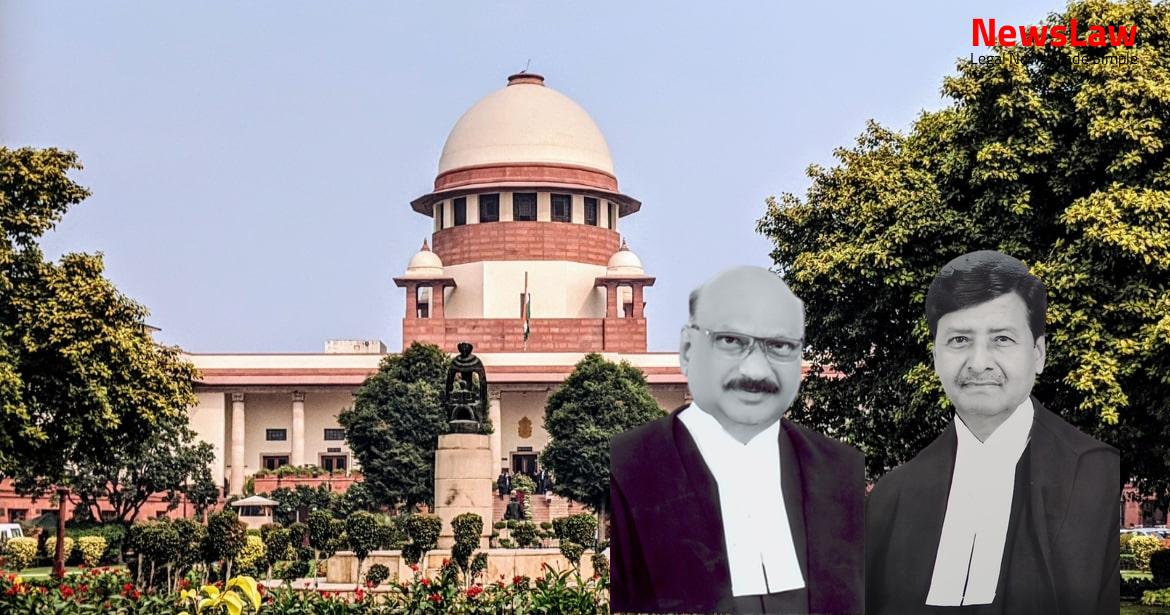In a recent legal case, the court focused on the meticulous scrutiny of witness testimonies to unravel discrepancies and inconsistencies. Emphasizing the need for corroboration and proper documentation, the judgment sets a precedent for assessing the quality of evidence over quantity. Understanding the three categories of oral testimony and the necessity of reliable corroboration, the court navigated through complex legal intricacies. Delve deeper into the essence of legal analysis in evaluating witness testimonies and the weight they carry in court decisions. #LegalAnalysis #WitnessTestimonies #CourtJudgment
Facts
- The appeals challenge the judgment and order of the High Court of Judicature at Allahabad confirming the conviction and sentence passed by the trial court.
- The appellants were convicted for offences under Section 302 read with Section 149, Section 307 read with Section 149 and Section 148 of the IPC.
- The charges were framed against the accused persons for offences under Sections 147, 148, 302 read with 149 and 307 read with 149 of the IPC.
- Additional charges under the Arms Act were framed against accused Balveer and accused Deepi.
- The High Court dismissed the appeals filed by the appellants, upholding the judgment and order of the trial court.
- The appellants were sentenced to undergo imprisonment for life with a fine of Rs. 5,000/- each.
- The marriage of two daughters of deceased Prakash was scheduled for 1 May 2002.
- Inder (PW-2) suffered a gunshot injury on 27 April 2002.
- Accused persons hiding inside the house of Deepi came out carrying weapons when Prakash and Kripa were going to invite their relatives.
- Accused persons assaulted Prakash, threw him on the brick road, and also assaulted Inder (PW-2), Omwati, and Kripa who tried to save Prakash.
- An FIR was lodged on 27 April 2002 at 10.10 am based on information given by Omveer (PW-1), the brother of deceased Prakash.
- The accused persons pleaded not guilty and claimed to be tried, after which they assaulted others as well.
- The case was investigated, and a charge-sheet was filed in the trial court, which was then committed to the Sessions Judge for trial.
Also Read: Presumption of Genuine Endorsements in Cheque Case
Arguments
- The learned Senior Counsel contended that the prosecution did not examine Vijay Singh, the deceased’s brother, who was the first to inform the incident to the Police Station.
- Both Vijay Singh and Omveer (PW-1) underwent cross-examination with no damaging information elicited.
- The ocular testimonies of Omveer (PW-1) and Inder (PW-2) are supported by the recovery of incriminating material.
- The station diary entry based on telephonic information given by Vijay Singh was not presented by the prosecution.
- It was argued that Omveer (PW-1) could not have witnessed the incident despite being portrayed as an eyewitness.
- The appellants were alleged to be falsely implicated in the case, according to the Senior Counsel.
- Ms. Prashad argued that being relatives of the deceased should not discredit the testimonies of Omveer (PW-1) and Inder (PW-2).
- The testimony of the injured witness will have a special evidentiary status based on the law laid down in Jarnail Singh and Others v. State of Punjab.
- The judgment in Abdul Sayeed v. State of Madhya Pradesh is relied upon to support the submission.
- No interference is warranted in the concurrent orders passed by the trial court and the High Court according to the learned Senior Counsel.
- Re-appraisement or review of evidence is not normally done unless the decision of the High Court is vitiated by error of law or procedure.
- The reliance on the judgment in Smt. Dalbir Kaur and Others v. State of Punjab is emphasized.
Also Read: Medical Negligence and Compensation: A Landmark Decision
Analysis
- There are serious discrepancies and inconsistencies in the medical examination and recording of statements.
- Witness testimonies, particularly that of Inder (PW-2), require careful scrutiny due to discrepancies and improvements.
- Lack of proper documentation and seizure memos raises doubts about the evidence presented.
- Issues with the testimonies of interested witnesses and lack of corroboration for recoveries and incidents.
- The contradictions in the evidence of witnesses and medical examination reports raise questions about the reliability of the case.
- The necessity to scrutinize witness evidence with caution, especially in light of contradictions and inconsistencies.
- Necessity of proper documentation and corroboration for establishing facts and occurrences.
- Challenges in relying solely on witness testimonies without sufficient corroboration and proper documentation.
- Court is concerned with the quality and not with the quantity of evidence for proving or disproving a fact
- Oral testimony can be classified into three categories: wholly reliable, wholly unreliable, or neither wholly reliable nor wholly unreliable
- In cases of wholly reliable or wholly unreliable testimony, the court can easily come to a conclusion
- In cases where testimony is neither wholly reliable nor unreliable, the court needs corroboration in material particulars by reliable testimony, direct or circumstantial
- Judgments in cases like Himachal Pradesh Administration v. Shri Om Prakash, Arunachalam v. P.S.R. Sadhanantham, Mithilesh Kumari and Another v. Prem Behari Khare, State of U.P. v. Babul Nath, Pattakkal Kunhikoya (Dead) By LRs. v. Thoopiyakkal Koya and Another provide precedent in this matter
- Recent case of Ashoksinh Jayendrasinh v. State of Gujarat highlighted that the High Court’s failure to appreciate oral evidence can be corrected by the Supreme Court
- Appellants entitled to benefit of doubt
- Prosecution failed to examine independent witnesses
- Case lacks evidence
Also Read: Remand of Writ Petition for Restoration and Decision on Merits
Decision
- Pending application(s) for bail disposed of in the mentioned terms.
- All the charges against the appellants are acquitted.
- Deepi’s bail bonds to be cancelled.
- Rest of the accused to be set at liberty if not required in any other case.
Case Title: KHEMA @ KHEM CHANDRA ETC. Vs. THE STATE OF UTTAR PRADESH ETC. (2022 INSC 810)
Case Number: Crl.A. No.-001200-001202 / 2022



